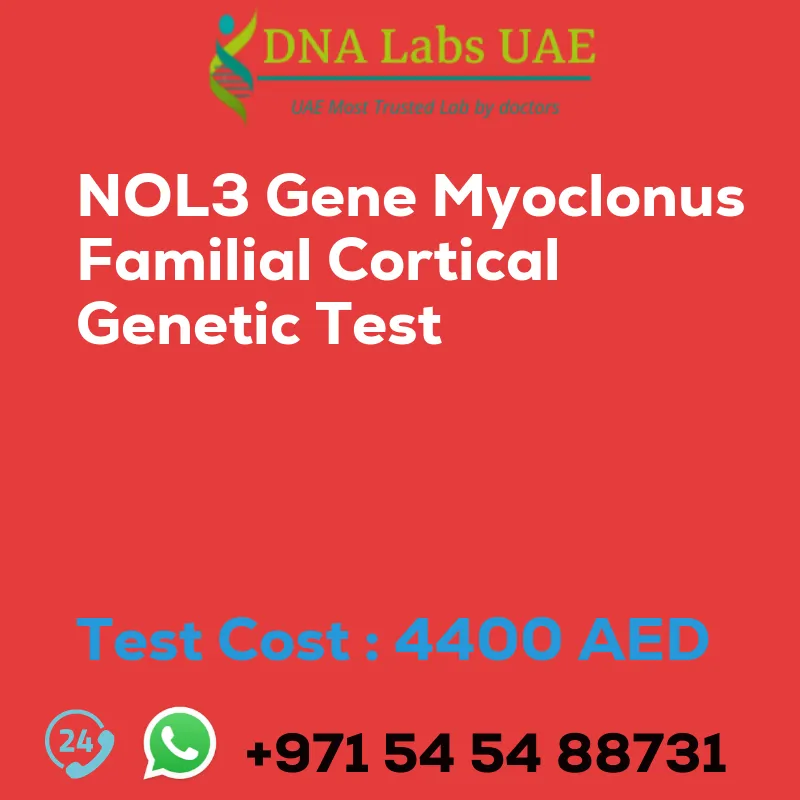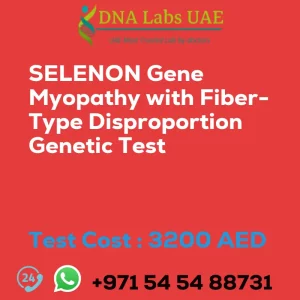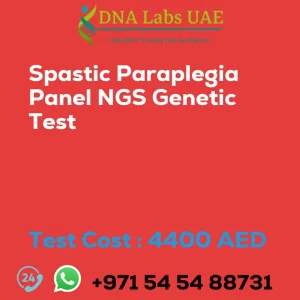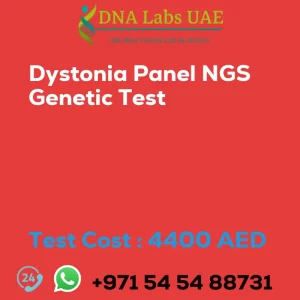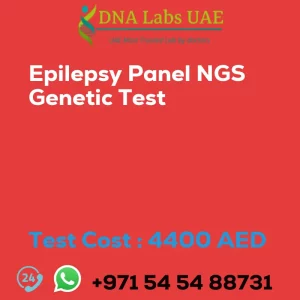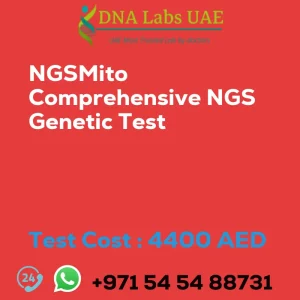NOL3 Gene Myoclonus Familial Cortical Genetic Test
Introduction
The NOL3 gene is associated with familial cortical myoclonus, a genetic disorder characterized by involuntary muscle jerks or twitches (myoclonus) that primarily affect the arms and hands. These jerks are usually triggered by voluntary movements or external stimuli and may be worsened by stress or fatigue.
About the Test
The NOL3 Gene Myoclonus familial cortical Genetic Test is a type of genetic testing used to identify any mutations or variations in the NOL3 gene that may be responsible for familial cortical myoclonus. The test utilizes Next-Generation Sequencing (NGS) technology, which allows for a comprehensive analysis of the entire gene, enabling the identification of any potential disease-causing mutations or variations.
Test Components
- Price: 4400.0 AED
- Sample Condition: Blood or Extracted DNA or One drop Blood on FTA Card
- Report Delivery: 3 to 4 Weeks
- Method: NGS Technology
- Test Type: Neurological Disorders
- Doctor: Neurologist
- Test Department: Genetics
Pre-Test Information
Before undergoing the NOL3 Gene Myoclonus familial cortical Genetic Test, it is important to provide the clinical history of the patient who is going for the test. Additionally, a genetic counseling session may be conducted to draw a pedigree chart of family members affected with NOL3 Gene Myoclonus familial cortical.
Test Process
The NGS genetic testing process involves extracting DNA from a patient’s blood or saliva sample and then sequencing the DNA to analyze the specific genes of interest. This allows for a comprehensive analysis of the entire NOL3 gene, enabling the identification of any potential disease-causing mutations or variations.
Benefits of the Test
By identifying the specific genetic mutation or variation in the NOL3 gene, NGS genetic testing can help confirm a diagnosis of familial cortical myoclonus and provide valuable information for genetic counseling and management of the condition. It can also assist in understanding the inheritance pattern of the disorder within a family and facilitate early detection and intervention for at-risk individuals.
Conclusion
The NOL3 Gene Myoclonus familial cortical Genetic Test offered by DNA Labs UAE is a valuable tool for diagnosing and managing familial cortical myoclonus. With its use of NGS technology, this test provides comprehensive analysis and valuable insights into the genetic variations or mutations associated with this condition. If you suspect familial cortical myoclonus or have a family history of the disorder, it is recommended to consult a neurologist and consider undergoing this genetic test for a better understanding of the condition and personalized treatment options.
| Test Name | NOL3 Gene Myoclonus familial cortical Genetic Test |
|---|---|
| Components | |
| Price | 4400.0 AED |
| Sample Condition | Blood or Extracted DNA or One drop Blood on FTA Card o |
| Report Delivery | 3 to 4 Weeks |
| Method | NGS Technology |
| Test type | Neurological Disorders |
| Doctor | Neurologist |
| Test Department: | Genetics |
| Pre Test Information | Clinical History of Patient who is going for NOL3 Gene Myoclonus, familial cortical NGS Genetic DNA Test A Genetic Counselling session to draw a pedigree chart of family members affected with NOL3 Gene Myoclonus, familial cortical |
| Test Details |
The NOL3 gene is associated with familial cortical myoclonus, a genetic disorder characterized by involuntary muscle jerks or twitches (myoclonus) that primarily affect the arms and hands. These jerks are usually triggered by voluntary movements or external stimuli and may be worsened by stress or fatigue. NGS (Next-Generation Sequencing) genetic testing is a method used to analyze multiple genes simultaneously to identify genetic variations or mutations that may be associated with a particular condition or disease. In the case of familial cortical myoclonus, NGS genetic testing can be performed to detect any mutations or variations in the NOL3 gene that may be responsible for the disorder. NGS genetic testing involves extracting DNA from a patient’s blood or saliva sample and then sequencing the DNA to analyze the specific genes of interest. This testing method allows for a comprehensive analysis of the entire gene, enabling the identification of any potential disease-causing mutations or variations. By identifying the specific genetic mutation or variation in the NOL3 gene, NGS genetic testing can help confirm a diagnosis of familial cortical myoclonus and provide valuable information for genetic counseling and management of the condition. It can also assist in understanding the inheritance pattern of the disorder within a family and facilitate early detection and intervention for at-risk individuals. |

